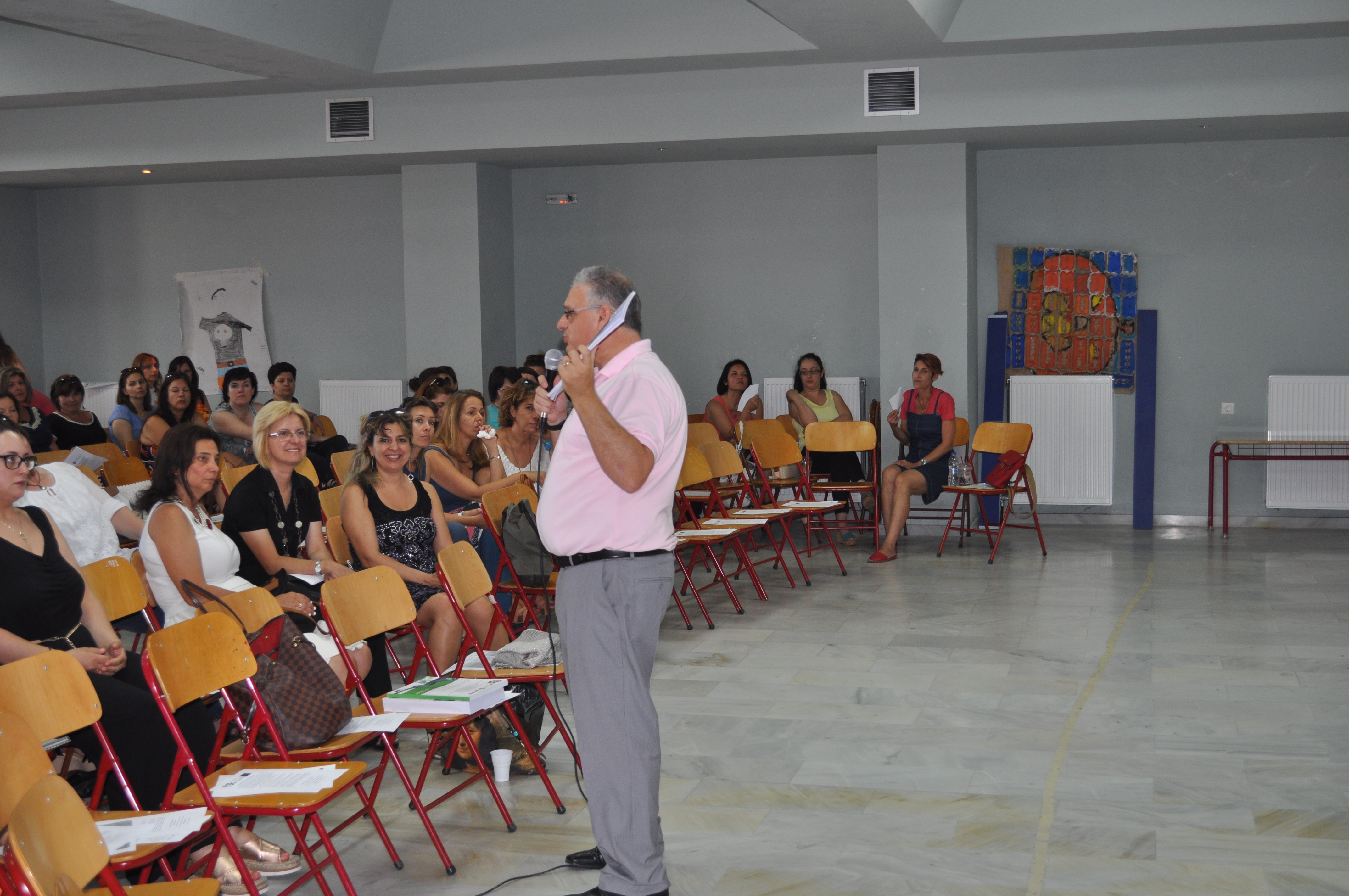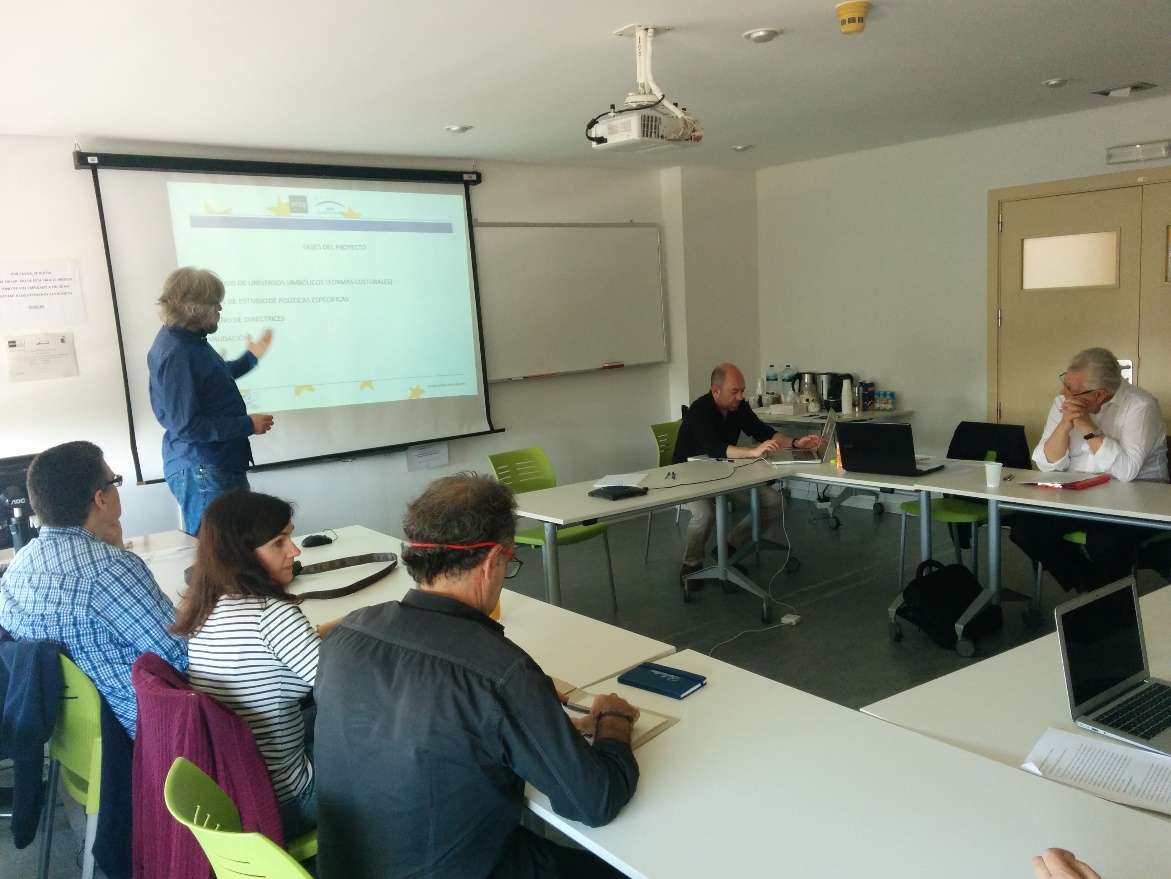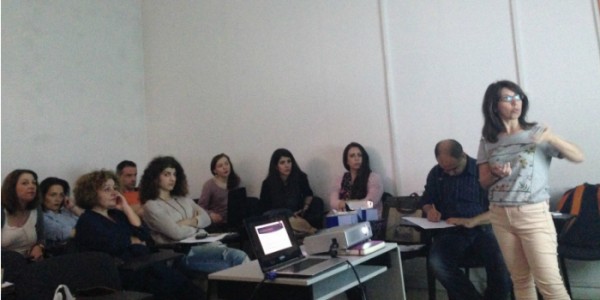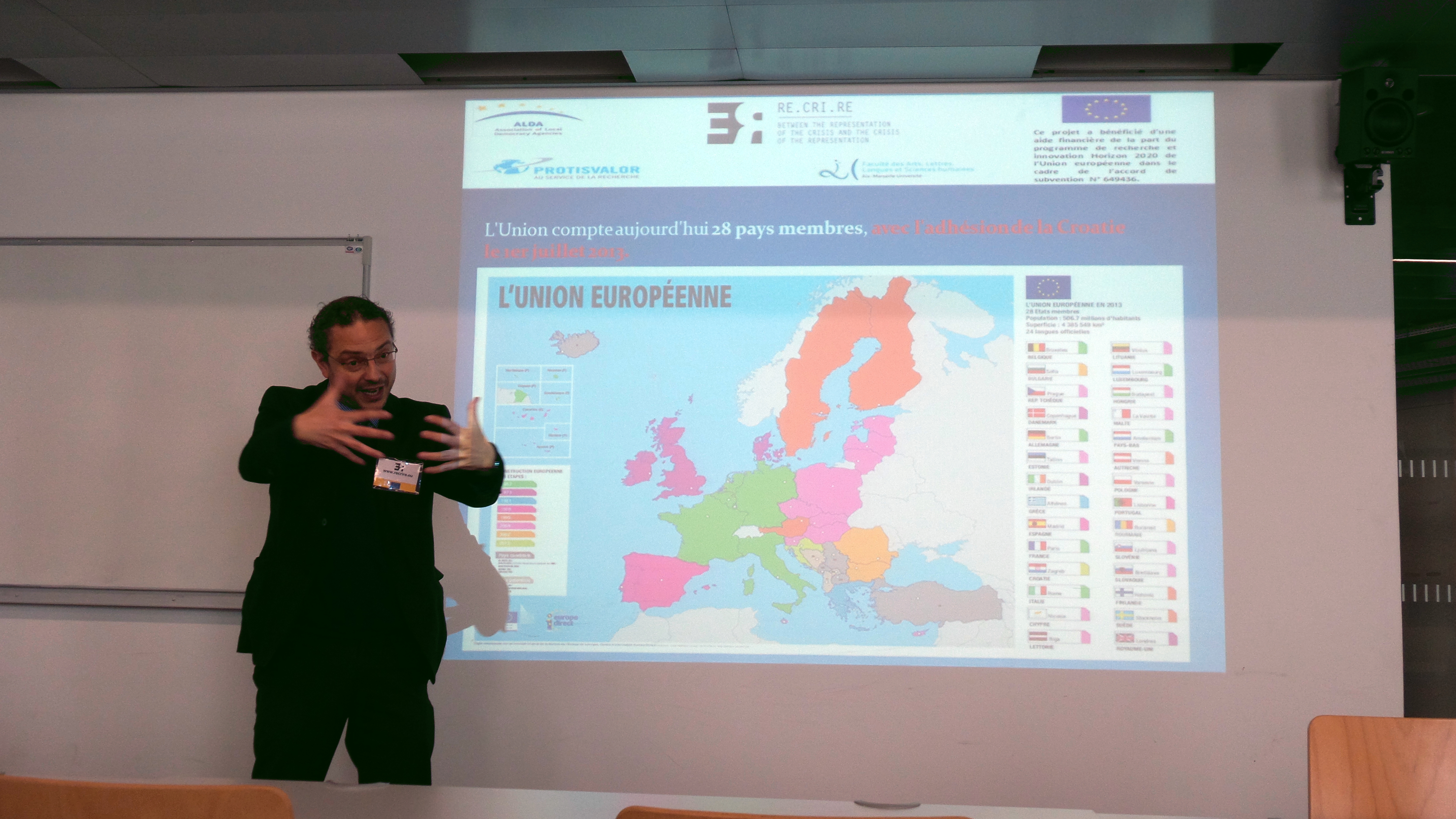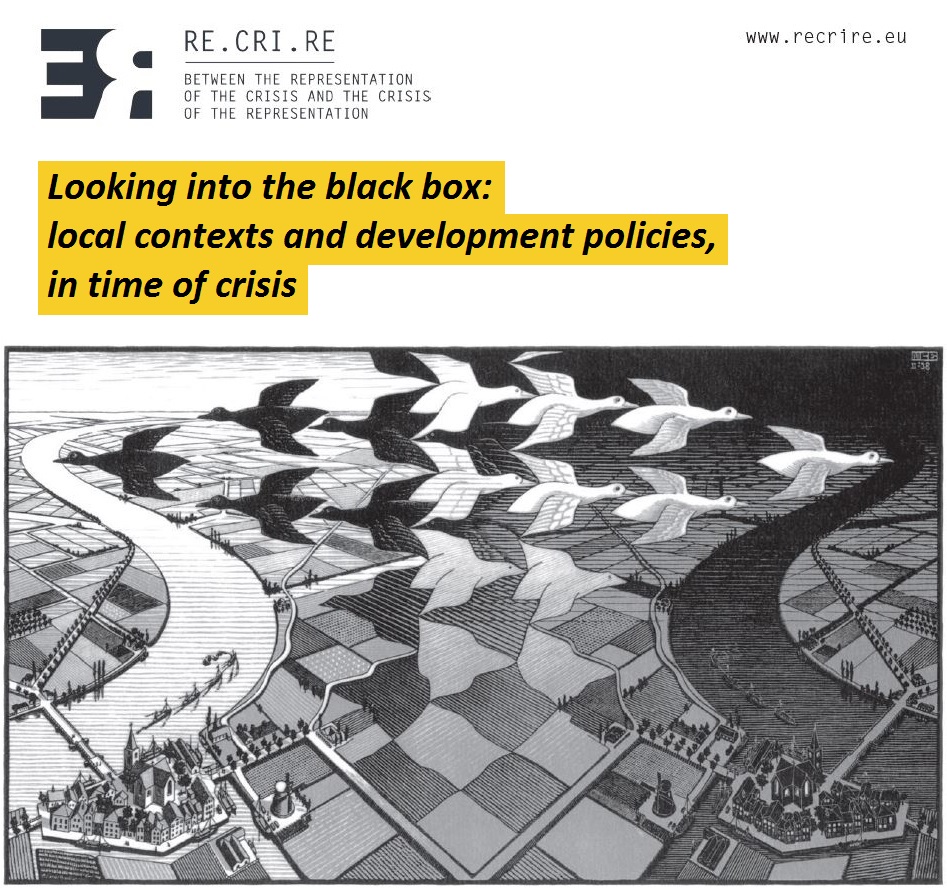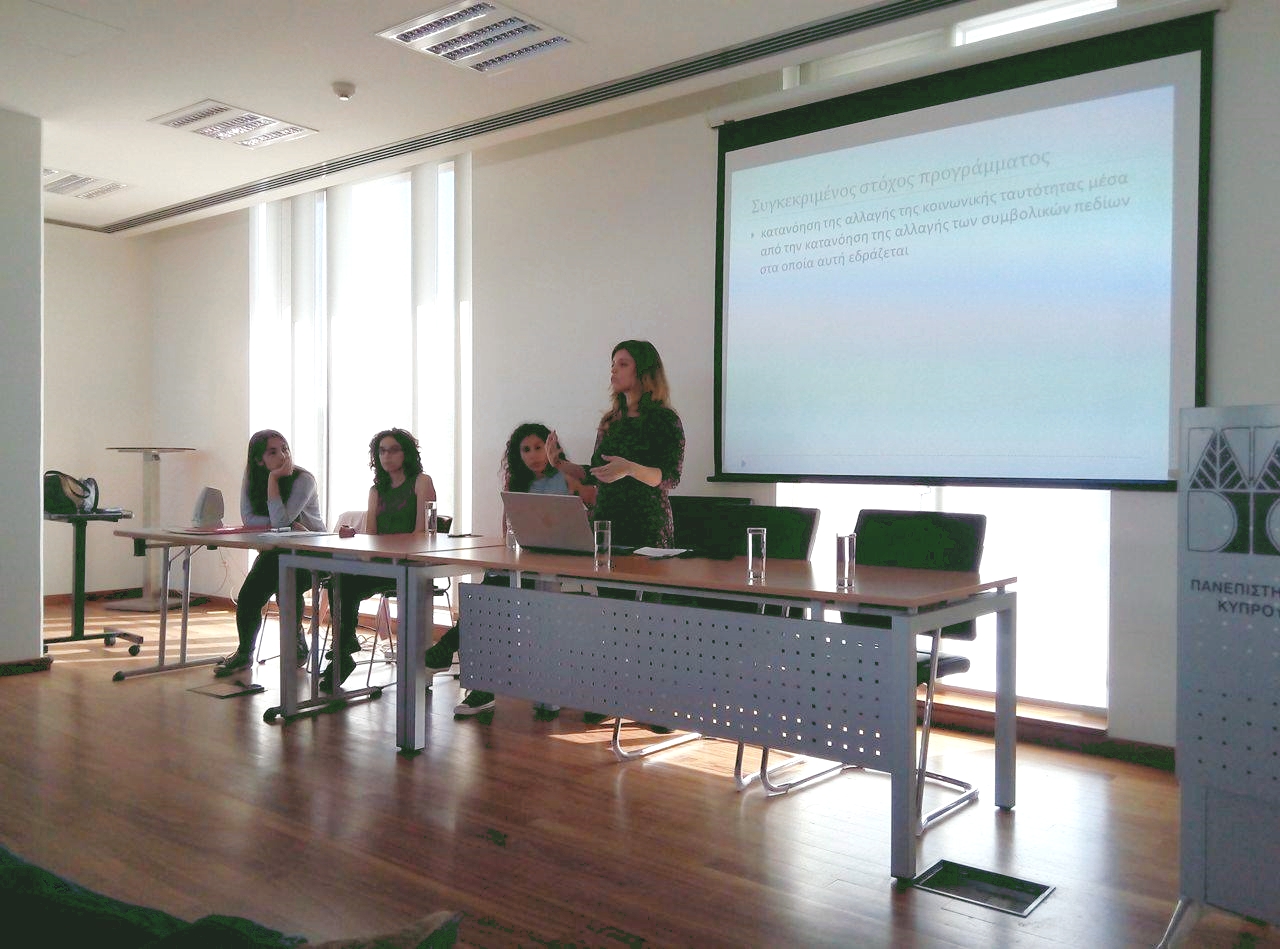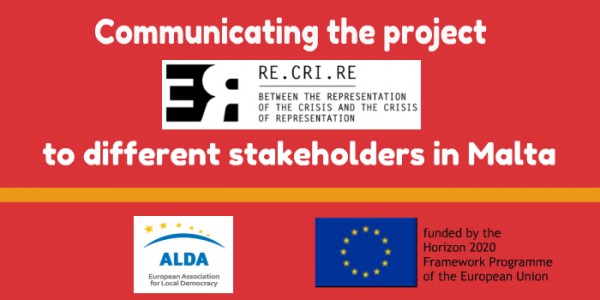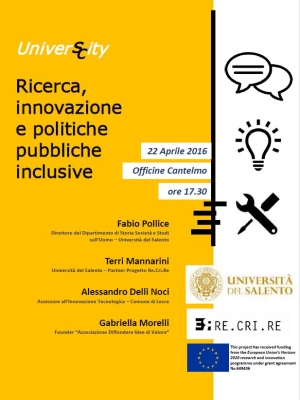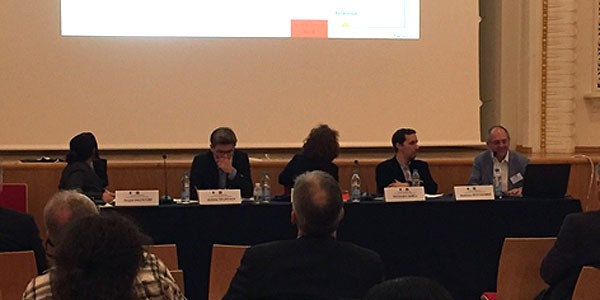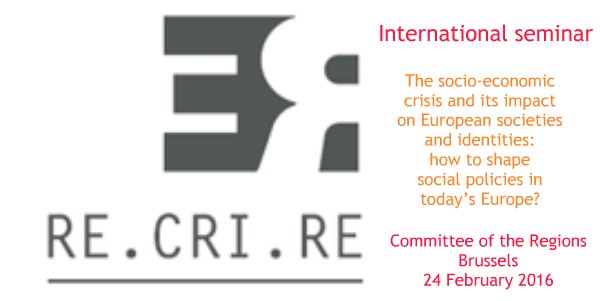The participants were mainstream teachers, specialty teachers (i.e special education, physical education, music) as well as headmasters and school counsellors. In this working seminar the UOC Research Team made a general presentation of the RE.CRI.RE. project focusing on its aims, goals, premises and structure. Also, the UOC case study entitled “Teachers’ evaluation in time of crisis: An opportunity for empowerment or a vulnerability factor? The challenge of policy making-A Greek case study†was thoroughly presented and was linked to the general rationale of the RECRIRE project.
At the end of the working seminar, a discussion with the group lead to fruitful conclusions and highlighted major and legitimate concerns of the local actors and stakeholders regarding the fundamental concept of the symbolic universes and the basic assumptions of RECRIRE and whether these are taken into consideration during the policy making process. Finally, the presentation aimed at giving incentives to the teachers about the potential benefits of their active involvement in the project and creating a network of volunteers and collaborators to participate in the research activities of the project starting in the Fall 2016. 20 teachers on the day of the seminar have expressed their desire to participate in the focus groups and gave us their contact information to further pursue our collaboration.


